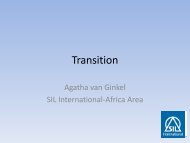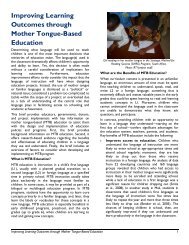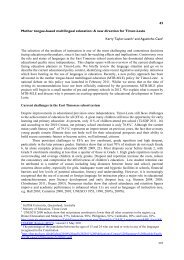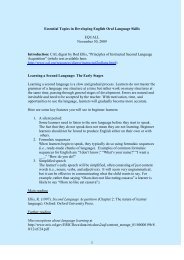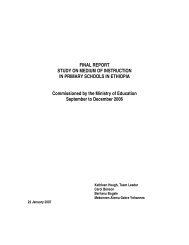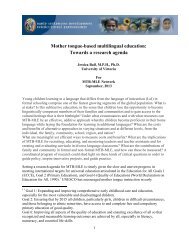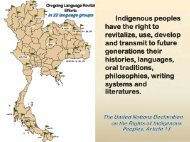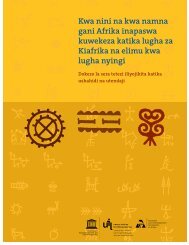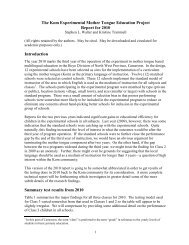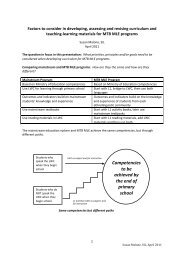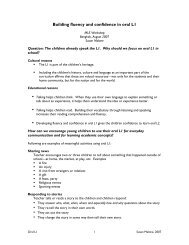Part I.pdf - MTB-MLE Network
Part I.pdf - MTB-MLE Network
Part I.pdf - MTB-MLE Network
Create successful ePaper yourself
Turn your PDF publications into a flip-book with our unique Google optimized e-Paper software.
emphasized frequency, not duration, of training – bringing teachers to a central point more often,rather than having them stay for a long time. Teachers enjoy sharing their teaching experienceswith each other, particularly because work in a village setting can leave teachers feeling secluded.The frequent training process helps assuage this isolation.Once trained, formal school teachers tend to prefer to stay in urban areas; therefore, there is a shortageof teachers for rural, and especially remote, areas. In Laos, currently a project is underway thattrains girls as teachers under the proviso that they return to their home villages. Community teachersand mobile teams of teachers/teacher trainers are an excellent resource for remote areas.Payment of NFE teachers is a difficult issue. In some countries, they are paid; in others, there isno payment. During teacher training, some countries pay expenses and a small incentive allowance.Decisions on payment need to be based on the local context.Experiences from ThailandThai participants shared two perspectives on teacher training – the former system and the pilotproject approach that is currently being implemented.Former SystemA. Purpose of Functional Literacy for Hilltribes• Bridge to Thai language and culture• Vocational skills• Problem-solving skills• Civic responsibilityB. Logistics for Functional Literacy Project• ‘Volunteer teachers’ sent out to the community – called volunteer, although they arepaid a salary for daytime classes with children; evening classes are held for adult learners• Teachers participate in community development activitiesC. Thai-only literacy class results (200 hours of study)• Inadequate fluency – not fluent in literacy or in mathematics• Discontinuity of skill practice• Learning materials not relevant to community – developed by outsiders from Bangkok• Inadequate practice for childrenD. Adult literacy rates are still very low• Average (among the hilltribes) is 16.39%• More than 2,000 villages are still without educational services of any kind52



